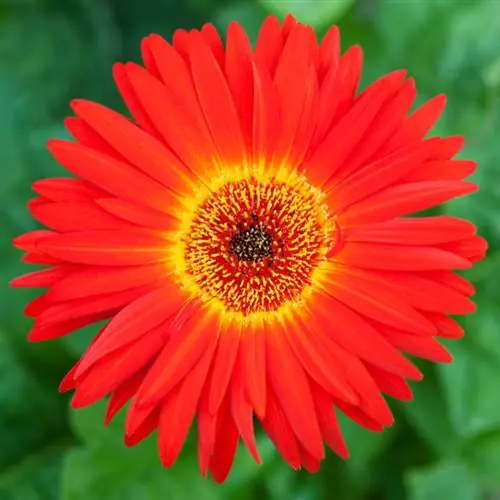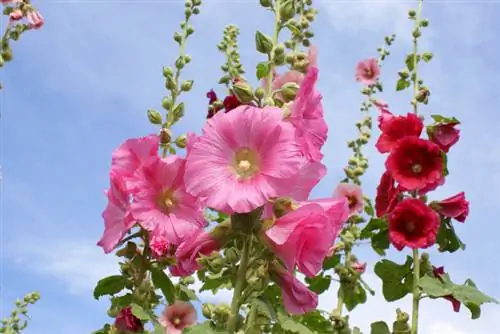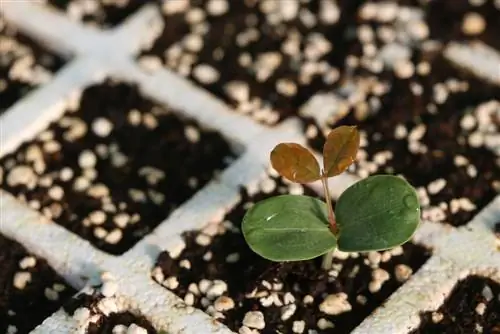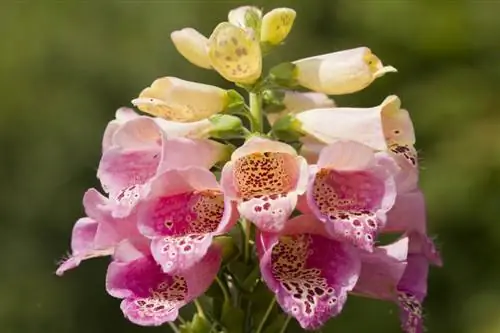- Author admin [email protected].
- Public 2023-12-16 16:46.
- Last modified 2025-06-01 06:02.
Gerbera not only provides decorative color accents on the windowsill or balcony. The pretty tropical plant can also be kept well in the garden. Either you care for it as an annual flower plant or you overwinter the gerbera indoors.
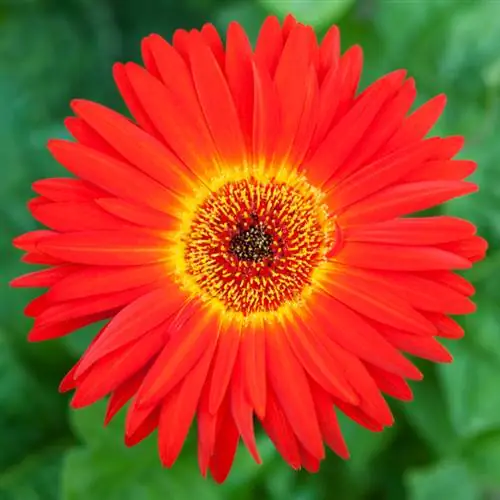
How do I properly care for gerberas in the garden?
Gerberas in the garden thrive best in a bright, warm location with loose, well-drained soil that is well enriched with compost. You should maintain a planting distance of at least 50 cm, leave the root crown on the surface of the soil and water the plant regularly, but not too much.
Garden gerbera - more robust than houseplants
Gerbera often feels more comfortable outdoors than indoors on the windowsill. Outside it gets enough air and light and thanks you with abundant flowers.
Unfortunately, most Gerbera varieties are not hardy. That's why most gardeners only keep the flower as an annual and replant it every spring.
The hardy variety “Garnivea”, which is available in many colors and sizes, offers an alternative. It is partially hardy and can withstand temperatures down to minus five degrees. It is advisable to choose a sheltered location and cover the plants in winter.
How to plant gerberas in the garden
- Choose a bright, warm location
- Avoid direct midday sun
- Loose the soil
- Refine with compost
- Don’t plant plants too deep
- Press earth
- Keep well moist, avoid waterlogging
- Fertilize once a month
The plants are planted so deeply in the soil that the root crown remains on the surface of the soil. The planting distance from other plants should be at least 50 centimeters. Gerbera develops quite large leaves that need their space.
Ensure that the potting soil is always slightly moist but never wet. Always water the gerbera from below.
Keeping gerberas in the garden as perennials
Since most varieties are not hardy, you will have to dig them up in the fall. To do this, prick out the root ball generously and place the plant in a pot.
Overwinter the gerbera in a bright place where temperatures are between 12 and a maximum of 15 degrees. During winter rest it is enough to give a little water once or twice a month. There is no fertilization.
The gerbera can be put back in the garden next year after the Ice Saints at the end of May.
Tips & Tricks
The soil in your garden is very firm, but you don't want to miss out on gerberas in your flower bed? Create a raised bed! Moisture cannot accumulate in a raised bed and all plants get plenty of light and warmth.

